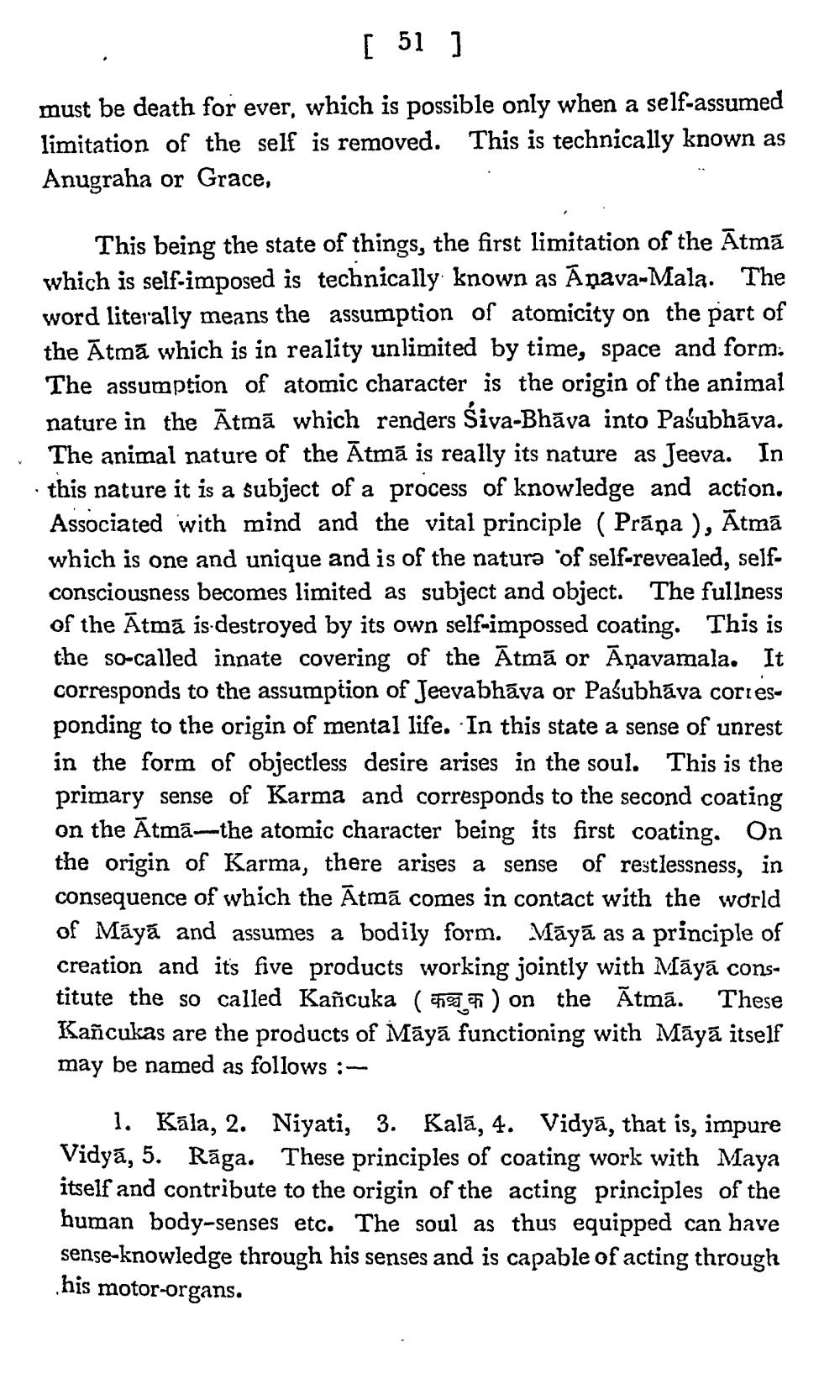________________
[ 51 ]
must be death for ever, which is possible only when a self-assumed limitation of the self is removed. This is technically known as Anugraha or Grace,
This being the state of things, the first limitation of the Atmā which is self-imposed is technically known as Apava-Mala. The word literally means the assumption of atomicity on the part of the Atma which is in reality unlimited by time, space and form. The assumption of atomic character is the origin of the animal nature in the Atma which renders Śiva-Bhāva into Pasubhāva. The animal nature of the Atma is really its nature as Jeeva. In this nature it is a subject of a process of knowledge and action. Associated with mind and the vital principle (Prāņa ), Ātmā which is one and unique and is of the nature of self-revealed, selfconsciousness becomes limited as subject and object. The fullness of the Atma is destroyed by its own self-impossed coating. This is the so-called innate covering of the Atma or Aņavamala. It corresponds to the assumption of Jeevabhāva or Paśubhava coriesponding to the origin of mental life. In this state a sense of unrest in the form of objectless desire arises in the soul. This is the primary sense of Karma and corresponds to the second coating on the Atma-the atomic character being its first coating. On the origin of Karma, there arises a sense of restlessness, in consequence of which the Atma comes in contact with the world of Maya and assumes a bodily form. Māyā as a principle of creation and its five products working jointly with Maya constitute the so called Kañcuka () on the Atmā. These Kañcukas are the products of Maya functioning with Māyā itself may be named as follows :
1. Kala, 2. Niyati, 3. Kala, 4. Vidya, that is, impure Vidya, 5. Rāga. These principles of coating work with Maya itself and contribute to the origin of the acting principles of the human body-senses etc. The soul as thus equipped can have sense-knowledge through his senses and is capable of acting through his motor-organs.




